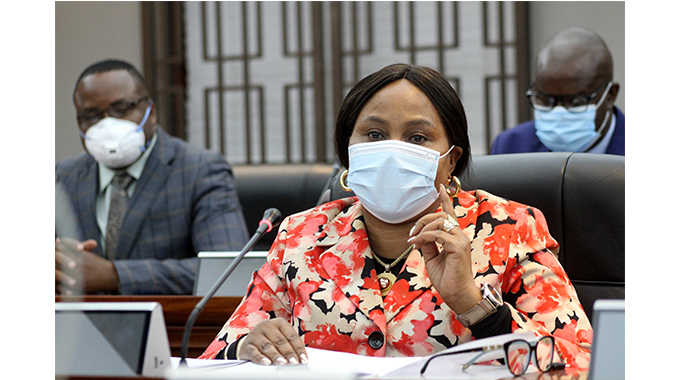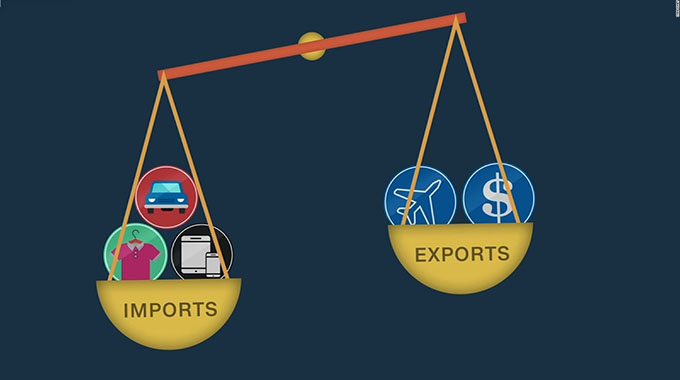Covid-19: Re-opening of schools premature

Yoliswa Dube-Moyo
MANY of us are scared. Nervous about visiting a supermarket and frightened when someone coughs or sneezes in our direction.
We are worried about touching frequently used surfaces and apprehensive about being in seemingly crowded places.
The global Covid-19 pandemic which has claimed the lives of hundreds of thousands across the world has made us paranoid.
At this point, parents are uneasy about sending their children back to school following their premature closure and the national lockdown imposed on March 30 to help slow the spread of the disease.
However, the re-opening of schools is imminent as Government recently announced that schools would be re-opened on July 28 while the June examinations are slated to be written between June 29 and July 22.
“I don’t know why we’re rushing. Now is not the time to be opening schools. There are so many factors to consider including the safety of our children and their teachers,” said Ms Tarisai Matanga whose son is in Grade Seven and is expected to sit for public examinations this year.
She said of concern was transporting her child to school considering he previously used public transport to get to school.
“We’re being encouraged to maintain social distance, how will he get to school? The Zupco buses are currently overwhelmed, will he be able to make it to school on time? Tell me, how are teachers going to be able to make sure these 12-year-olds keep their masks on or do not decide to share or exchange the masks? There are just so many things to consider to be honest,” said Ms Matanga who insisted the re-opening of schools should be pushed further.
Briefing journalists on the 19th Cabinet meeting decision matrix in Harare on Tuesday, Information, Publicity and Broadcasting Services Minister Monica Mutsvangwa said Cabinet resolved that the re-opening of schools be moved from the proposed 29 June, 2020 to 28 July, 2020 to allow the Ministry of Primary and Secondary Education to engage Treasury and other stakeholders/partners to mobilise for the provision of adequate resources.
Making a presentation before Parliament last week, the Portfolio Committee on Primary and Secondary Education recommended that the June examinations be pushed to September as the country was not ready to re-open schools citing various reasons.
Parliamentarians were in consensus saying schools should only be opened once learners can be accommodated safely.
Chairperson of the Portfolio Committee Ms Priscilla Misihairabwi-Mushonga said interactions her committee had with various stakeholders had shown that the country was not ready for the re-opening of schools.
“Teachers’ unions were worried over the safety of pupils and teachers. All these stakeholders said we couldn’t proceed to re-open because the basics like running water, personal protective equipment and basic screening equipment that are needed for that are not there,” said Ms Misihairabwi-Mushonga.
She said various consultations were being made to facilitate for the re-opening of schools but no one was thinking about whether or not the children themselves were ready to go back to school.
“We sit here and we say it’s best for them, we don’t know what it means for them psychologically. We don’t know whether they’re ready or not. It’s another thing to take them to school but if they’re not ready to be back at school because of this disease, then we have not done much.
“We have not done enough to be able to settle their fears. Many of them were just scared, ‘kune corona’. The long and short of it is our kids are not ready. I think we have underestimated the psychological effect that Covid-19 has had on our little people. What we have seen in all these consultations is no one has bothered to at least have a conversation with our little people and hear what they have in their minds,” she said.
Ms Misihairabwi-Mushonga said Government was ready because an announcement had been made that schools would be opened in a phased manner starting with examination classes.
“Zimsec said they were ready in terms of the paper work and the preparation but they also indicated to us that one of the problems they were facing was that because of Covid-19, a lot of parents had not been to work and therefore couldn’t pay school fees. So, a number of kids had not been able to pay for the examination fees, in particular, the examination fees for November.”
She continued: “The Ministry indicated to us that they wanted the schools to open but they were also very clear to us that there are budgetary implications around the opening of schools. When we asked them to give us a figure of what this meant; the figure they gave us was $21 billion. They were very clear about what the needs were and there were issues around water, sanitation, the PPEs for both teachers and for the school children. However, they were still convinced that given about three to four weeks at the time that we met them which is about two weeks ago, they would have been prepared enough to move for the opening of schools and that also included them training the teachers around how they will be managing the kids.”
Zimbabwe is still on partial lockdown where some industries and businesses are allowed to operate under rules requiring the provision of a safe working environment, face masks, social distancing and arrangements for the testing for Covid-19.
Many schools have large classes and crowded conditions, and before schools are opened, the Government is urged to spell out how the numbers will be managed to minimise the rate of transmission if there is an infection at any establishment.
There are no secure water supplies at many schools, which would need to be fixed for the maintenance of clean sanitation facilities, including toilets, sinks and bathrooms.
Reliable and safe transport, where social distancing can be implemented, would need to be organised and managed for the scores of pupils who normally travel to school in crowded mini buses.
Beyond the safety of pupils and teaching staff, schools would need personal protective clothing for other workers, including cleaners and gardeners, clinical staff and those managing food and kitchens at boarding schools.
The teacher to pupil ratio at many schools is high, which would make social distancing in classrooms almost impossible.
“Our position is we’re not ready as a country to proceed with examinations on the dates that have been set by Zimsec. In particular because of the things that we’re talking about. Honourable Members in the Committee were even saying that it is not just rural areas but even urban areas themselves — there’s no running water. We know that our young children are trying to sew and do masks — which is a fantastic idea in terms of the training but we also need to understand whether the standards have been checked. This is why we have the Standards Association of Zimbabwe — really, for us, any mask that somebody is going to wear has to be a mask that conforms with the WHO standards,” added Ms Misihairabwi-Mushonga.
Health experts expect a rise in Covid-19 cases during winter highlighting that the more people have colds, the more they have a chance of infecting others. It would be prudent to try re-opening schools when it is warmer.
“Let us use that as our pilot study to see how we are going to do the usually known November exams which we may still do in November, perhaps in December — it doesn’t matter. Like His Excellency said at one time, the economy can be revived but bodies and people that have died cannot be revived. We can revive the schools, we have time to revive the schools. We can’t revive our little children when they’re gone. So we can’t afford to do experiments,” said Ms Misihairabwi-Mushonga.
Zimbabwe had recorded 314 Covid-19 positive cases by late yesterday, with most cases emanating from returnees from South Africa and Botswana. Worryingly, a lot of people continue to escape from quarantine centres risking spreading the disease.
A significant number of people are crossing borders illegally and getting into communities.
National Constitutional Assembly leader Professor Lovemore Madhuku said if schools were opened now as cases continue to rise, it might be difficult to control the children and transmission of the virus.
“A lot of developed countries who encountered this pandemic before us, despite the fact that they are developed, school children are being infected. As one of the Third World countries, we don’t have enough resources. This might be a challenge for us in terms of controlling children and the transmission of the virus,” said Prof Madhuku.
He said the teacher pupil ratio is very high – one teacher teaching 60 pupils in a class in many cases, which makes it difficult to maintain social distance. “Opening our schools will put our children in a vulnerable situation. For example in boarding schools, some use bunk beds. A room which is supposed to accommodate two pupils accommodates four children and there’ll be no social distance. We need to look at this situation and determine what should be done. Rushing to open schools might cause danger to our children,” he said. – @Yolisswa








Comments